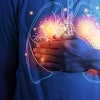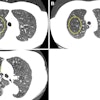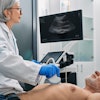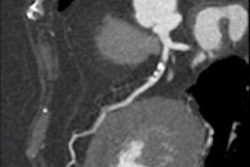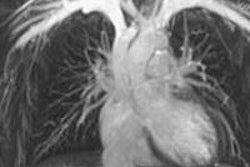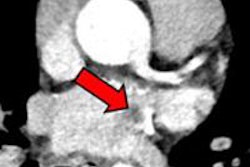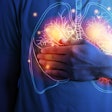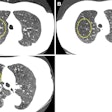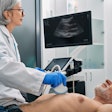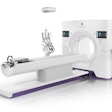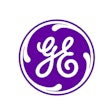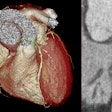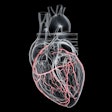Dear Cardiac Imaging Insider,
CT technology is being used to scan patients with fast-beating hearts at a fraction of the dose of standard CT coronary angiography, according to a new report from France.
Using a new 256-detector-row scanner, doctors in France are scanning patients with heart rates up to 93 beats per minute without motion or stairstep artifacts, according to the study team from Saint-Denis, which scanned 58 patients on either the new machine or a 64-detector-row model. All but one of the studies performed on 256-detector-row CT was diagnostic, and the radiation dose was quite low, as you'll see by clicking here.
Meanwhile in Germany, MRI is playing a starring role in the largest health study ever undertaken in the country. The aim is to carry out detailed research into typical diseases in the population to improve prevention, early recognition, and treatment of cancer, dementia, diabetes, and heart disease. The National Cohort (Nationale Kohorte) study is aiming for no fewer than 30,000 patients and better health outcomes in Germany, armed with the slogan: "Let's work together for a healthier future" ("Gemeinsam forschen für eine gesundere Zukunft"). Read more here.
In nuclear medicine, the International Atomic Energy Agency (IAEA) is hammering out an international agreement for global training recommendations designed to reduce radiation dose in nuclear myocardial perfusion imaging. The IAEA's Nuclear Medicine and Diagnostic Imaging (NMDI) section recently met to analyze data from nearly 8,000 myocardial perfusion studies carried out in some 65 countries. The dose variations were unacceptably wide, so the NMDI's cardiology panel has its work cut out. Learn more here.
Echocardiography may be the gold standard for finding clots in patients with thromboembolic stroke, but CT can actually see more pathology and more relevant pathology, according to a report from ECR 2015. Researchers at the congress discussed how CT is changing their practice in Saudi Arabia. Get the rest of the story by clicking here.
Finally, a team from the Netherlands is using MRI to explore the devastating toll of a variant of muscular dystrophy, even in seemingly healthy individuals. In fact, every single Duchenne muscular dystrophy carrier had pathologies, in a story you'll find here.
We invite you to scroll through the links below for the latest in your Cardiac Imaging Community. Gemeinsam forschen für eine gesundere Zukunft!
